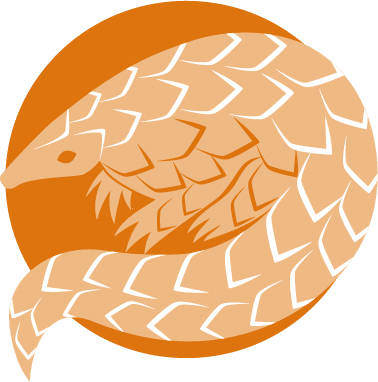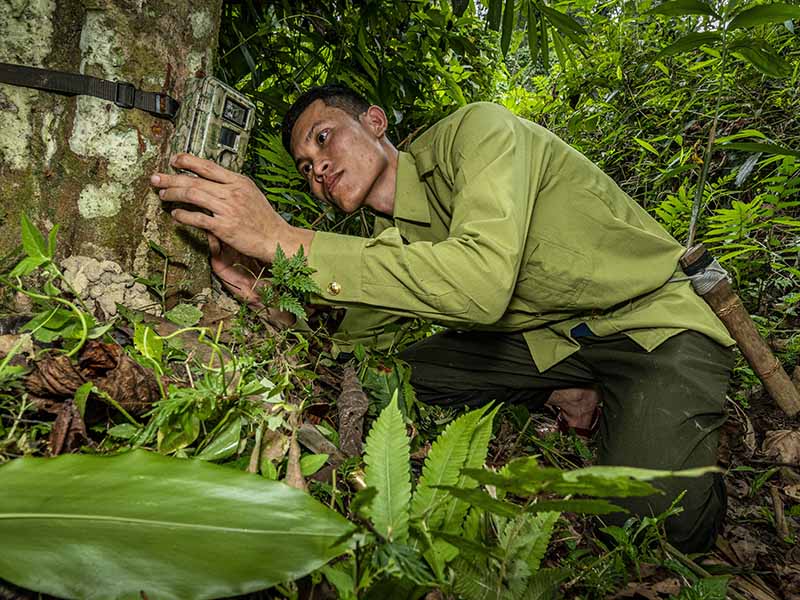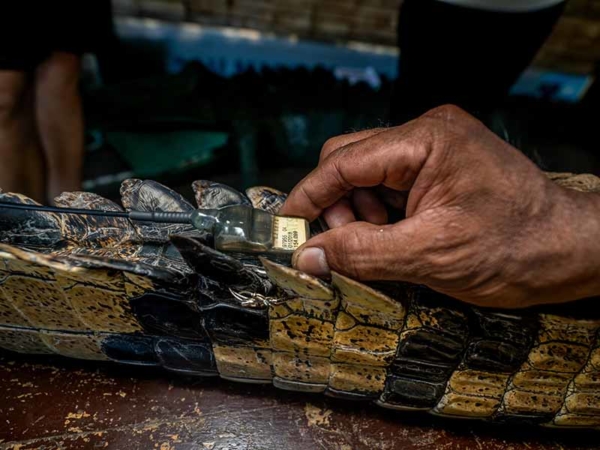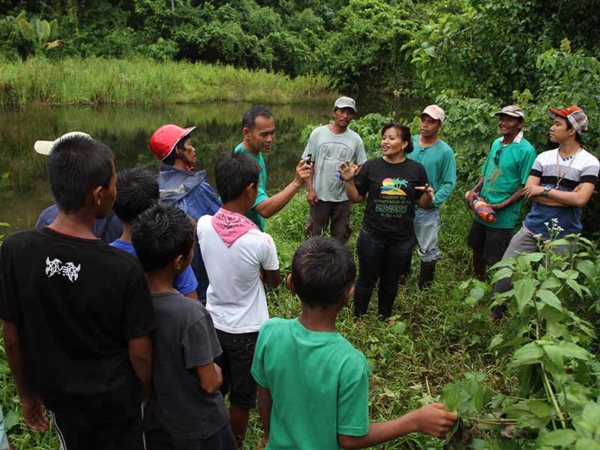As a region, Southeast Asia is home to a spectacular number of species. A high proportion of these species are restricted to a single country, island, or can be found in just one national park. Our Asian Species Programme takes a site-based conservation approach, in the areas where the most threatened species live, focusing on mitigating fundamental threats to species at their source.
Our aim is to reverse the downward trend for Asian species by:
Implementing new conservation programmes for highly threatened species receiving little or no conservation attention.
There are many overlooked and underfunded species in Southeast Asia. For example, tortoises and freshwater turtles in Vietnam and Indonesia, the endemic birds of Sangihe Island, Indonesia: the Sangihe Dwarf Kingfisher, Sangihe Shrike-thrush and Siau Scops-owl.
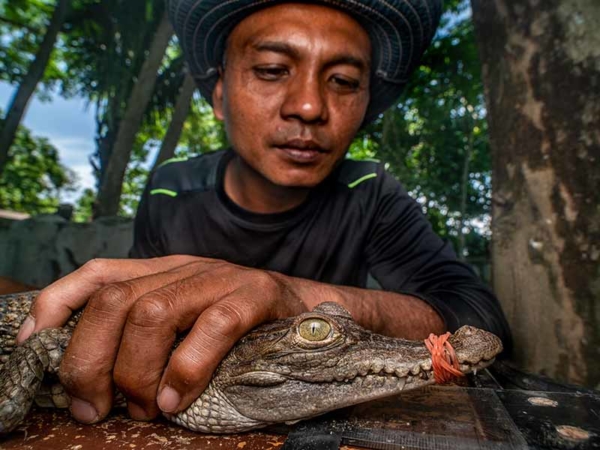
Supporting local and national groups throughout the region to conserve threatened species.
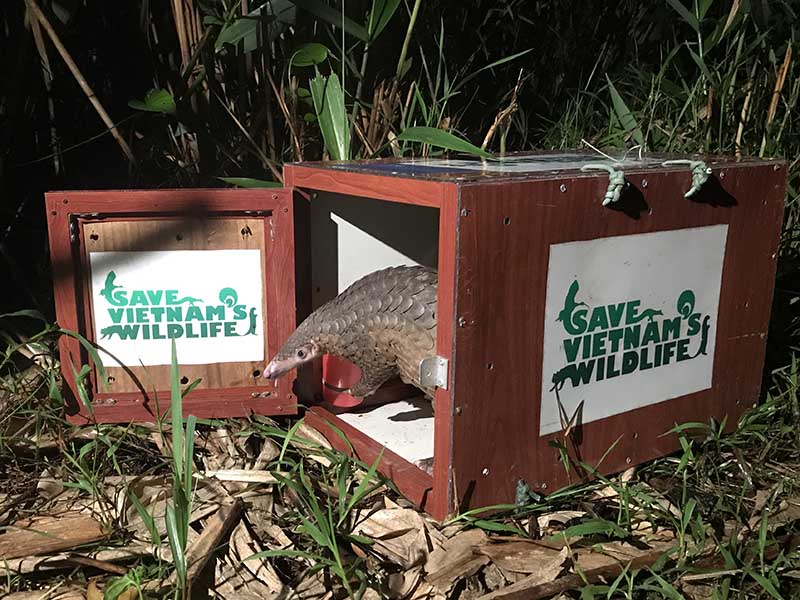
Synchronicity Earth is identifying promising local conservation groups in Indonesia, the Philippines and Vietnam and supporting their work focusing on Critically Endangered and Endangered species.
Supporting reintroduction of threatened species to the wild.
For some species, there are strong captive populations with low or no recorded wild populations, for example, species such as the Visayan Warty Pig or Edwards’ Pheasant. Synchronicity Earth supports organisations on the ground looking to reintroduce some of these species back into the wild.
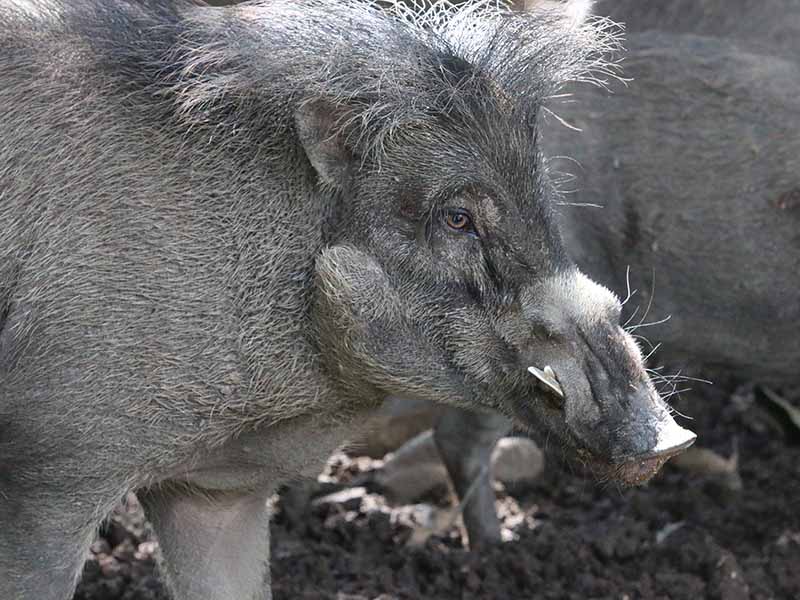
* Images (L to R): Chris Scarffe; Save Vietnam’s Wildlife; Talarak Foundation Inc.
“Synchronicity Earth is a wonderful supporter for Save Vietnam’s Wildlife’s mission, supporting what we believe are the best ways to secure strongholds for pangolin conservation: support to rescue animals from the illegal wildlife trade; work with the local community to protect the pangolin in the wild; and help to develop and fund our anti-poaching team to protect the animals that remain in the forest.”
Thai Nguyen, Founder, Save Vietnam’s Wildlife
Partner Profile: Save Vietnam’s Wildlife
Synchronicity Earth is already supporting Save Vietnam’s Wildlife (SVW) for its work on Sunda pangolin Manis javanica and Chinese pangolin Manis pentadactyla conservation. SVW is committed to protecting and increasing populations of threatened wildlife in Vietnam.
SVW’s approach to wildlife conservation is holistic, involving five core areas of activity: 1) rescue, rehabilitation and release of pangolins and small carnivores from the illegal wildlife trade; 2) research carried out in two national parks; 3) conservation education and outreach; 4) advocacy; and 5) animal welfare.
The organisation works with park rangers to tackle poaching, including clearing snares and running community consultations, through to efforts to release animals that have been captured and are en route to other countries.
“In 1999, when I was working as a community organiser in San Mariano in Isabela province, a fisherman brought a Philippine crocodile to our team. It was the first time that I had seen a real Philippine crocodile. That was when I first learned how special this species is: it is only found in the Philippines and is Critically Endangered. I realised that if we did not do something to save it, it would go extinct.”
Marites Gatan Balbas, Chief Operating Officer, Mabuwaya Foundation
Our Asian Species Programme
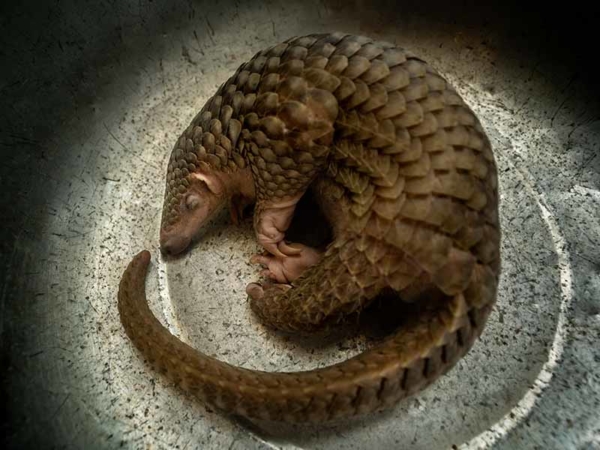
Protecting Species
Providing direct support for species conservation, in particular in Indonesia, the Philippines and Vietnam.

